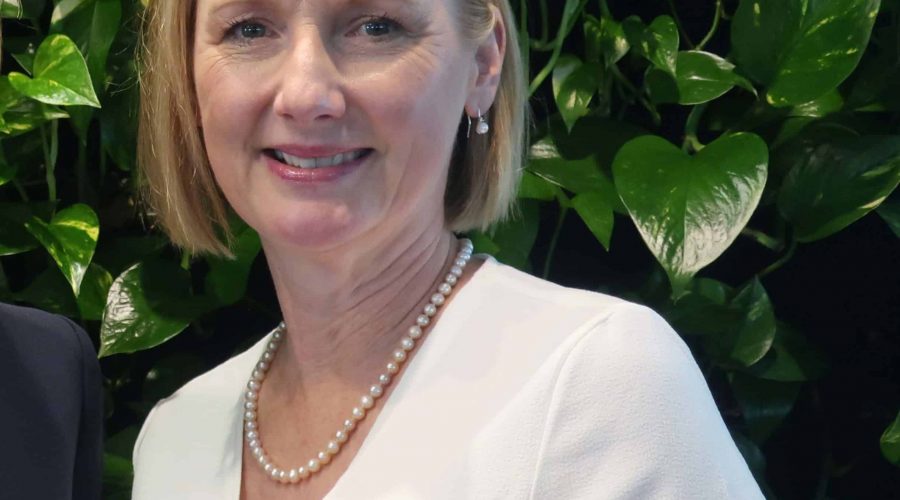Susan Lloyd-Hurwitz is CEO of Australian property giant Mirvac. Her unexpected appointment in 2012 was controversial, but five years on the company is thriving, delivering outstanding returns for shareholders and setting a world-class standard for workplace engagement.
Named in Forbes Asia Power Women of 2016, Susan has held executive positions at MGPA, Macquarie Group and Lend Lease Corporation, working in Australia, the US and Europe.
In this week’s Success Story Podcast, Susan speaks with Catherine Robson about overhauling Mirvac’s strategic approach in response to the changing property market, the housing affordability crisis and the green future of urban living.
After wrapping up her urban planning studies at the University of Sydney, Susan joined Lend Lease, eventually rising to the position of manager of the GPT retail fund, overseeing the $3 billion listed entity at just age 27.
She headed to the US in 1997 with Lend Lease and moved to Macquarie Bank in 2002.
At the time she was headhunted for Mirvac’s top role, Susan was Managing Director at LaSalle Investment Management, based in London.
Initially offered the position by then chairman of Mirvac, James MacKenzie, it took six months before Susan decided to relocate her family to Australia and join the company.
Susan’s 2012 appointment, announced the same day as former CEO Nick Collishaw’s departure was a shock for the industry and placed her in one of the most challenging situations of her career.
“Having all of this corporate noise, both internally, externally, the market was really quite challenging,” she recalls.
Susan forged ahead and a reinvigorated Mirvac found new clarity, focusing on urban development in Sydney and Melbourne and an asset creation strategy.
The company also made it clear to investors that return on invested capital would be prioritised over earnings per share whenever these two are in conflict.
“That’s how we will make decisions to protect the capital that has been entrusted to us by our security holders,” explains Susan.
Under her leadership, Mirvac’s employee engagement also rose from a dismal 37 per cent in 2012 to 88 per cent in 2017, a world-class standard for workplace engagement.
“Research is absolutely crystal clear that sustained high staff engagement is the single most powerful predictor of business performance,” explains Susan.
A pivotal change was the introduction of flexible working hours. For everyone.
“What we did was focus away from hours to output and impact,” explains Susan.
“It completely changed the dialogue because it was no longer that flexibility was just for working mothers, flexibility could be for everyone, even a site foreman.” Mirvac recorded the stories of the benefits of flexible working in internet documentary Equilibrium Challenge.
Now 76 per cent of Mirvac staff have some form of flexibility in their working agreement.
Mirvac, named by Dow Jones as the world’s most sustainable real estate company, is trialling a green housing experiment called House With No Bills in an effort to develop affordable, self-sustaining communities in the future.
The house has been designed to reduce its reliance on electricity to the point it will not generate any electricity bills.
“We see ourselves very clearly with a purpose of re-imagining urban life,” explains Susan.
When asked what the future looks like, her vision is on record: “In 20 years, we will value water as our most precious resource, and time together as our most valued discretionary spend.
“We are right now re-imagining what this future will be like for people who want their transactions instant but personal, their communities inclusive and safe, their journeys short and pollution free, their workplaces flexible and adaptive, and their shops and supplies local and free from slavery.”
When Susan was three years of age, her family moved from Northern Ireland’s capital Belfast to Manchester, escaping soaring political violence and unrest, later migrating from England to Australia.
The challenges of her family history have played a role in shaping Susan’s ambition when it comes to her career.
“I think it gives me a very good appreciation for the migrant story of Australia. I was the first person in my immediate family to go to university,” says Susan.
One of only 11 female CEO’s in ASX Top 200 companies, what advice would Susan give her younger self?
“You can only lead in your own style. Being authentically you and working out how to make that as effective as possible is the best way to lead.”
She’d also take more maternity leave. “I took 12 weeks with each child and I don’t know why now when I look back on it. So, if I was talking to my younger self, I’d say…. don’t do that!” she laughs.
Susan believes reading widely outside her professional discipline has been instrumental in her success.
Books which have been influential in her life include Full Catastrophe Living by Jon Kabat-Zinn, The Wisdom Of Crowds by James Surowiecki and Blink by Malcolm Gladwell.













